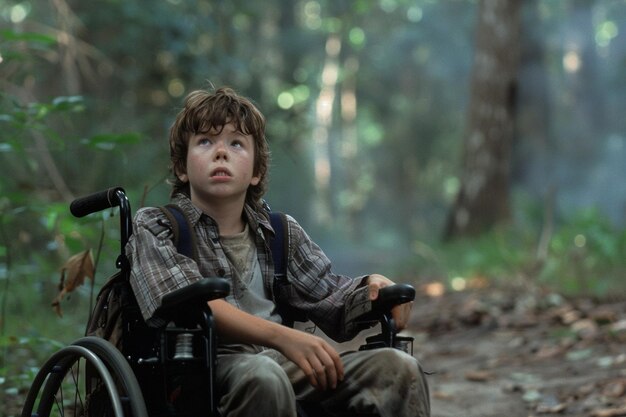Analyzing The Karate Kid: Themes, Characters, And Cultural Significance

Table of Contents
Overcoming the Underdog Narrative
Daniel LaRusso's Transformation
The Karate Kid centers on the underdog narrative of Daniel LaRusso, a teenager thrust into a new and unfamiliar environment. The "Karate Kid underdog" story is instantly relatable. Daniel's journey is one of significant personal growth. He begins as a vulnerable, bullied newcomer struggling to adapt to life in California. His initial experiences are marked by:
- Bullied newcomer: He is relentlessly targeted by the Cobra Kai dojo members.
- Struggles to adapt: He faces cultural differences and struggles to make friends.
- Finds mentorship: He finds an unlikely mentor in Mr. Miyagi.
- Learns discipline: Through rigorous training, he develops discipline and self-control.
- Self-defense and perseverance: He learns karate not just as a fighting style but as a means of self-defense and building perseverance.
This "Daniel LaRusso's transformation" is a testament to the power of resilience and self-belief. His journey from a timid outsider to a confident karateka embodies the core message of overcoming adversity.
The Power of Mentorship
The complex relationship between Daniel and Mr. Miyagi is central to the film's success. This "mentor-mentee relationship" in The Karate Kid goes far beyond simple karate instruction. Mr. Miyagi's unconventional teaching methods, often disguised as chores, impart valuable life lessons:
- Unconventional teaching methods: The "wax on, wax off" technique exemplifies this approach, teaching discipline and focus subtly.
- Life lessons beyond karate: Mr. Miyagi teaches Daniel about patience, trust, respect, and the importance of inner peace.
- Cultural exchange: The film subtly explores the cultural exchange between two different worlds, highlighting the mutual respect and understanding that can blossom from such interactions. "Mr. Miyagi's wisdom" is a key element in shaping Daniel's growth, proving that effective mentorship transcends specific skills and delves into character development. The "Karate Kid mentorship" is a model for positive relationships and personal growth.
Exploring Key Themes in The Karate Kid
Cultural Clash and Assimilation
The Karate Kid explores themes of "cultural significance," specifically illustrating the challenges Daniel faces adapting to a new environment and culture. The film subtly highlights:
- Cultural differences: The differences between Daniel's background and the Californian culture are highlighted, creating tension and conflict.
- Prejudice and stereotypes: Daniel experiences prejudice based on his background and his perceived naiveté.
- Finding belonging: He gradually finds a sense of belonging and acceptance, both through karate and through his relationship with Mr. Miyagi.
- Adapting to a new way of life: The film portrays the complexities and challenges of cultural assimilation. This "assimilation theme" resonates with audiences who have experienced similar situations, showcasing the "cross-cultural understanding" the film promotes.
Discipline, Patience, and Self-Improvement
Karate training in The Karate Kid is not just about physical skills; it's a metaphor for "self-improvement." The film emphasizes the importance of:
- Hard work and dedication: Daniel's success stems from his unwavering commitment to training.
- Focus and self-control: Karate demands mental and physical discipline, which translates to other areas of Daniel's life.
- Emotional resilience: Facing challenges in karate helps him develop the emotional strength to navigate other difficult situations. The film showcases "Karate Kid discipline" as a key element leading to personal growth, highlighting the importance of "patience in Karate Kid" and the overall message of self-improvement.
Violence vs. Non-Violence
The film presents a nuanced view on violence, distinguishing between self-defense and aggression. This exploration of "Karate Kid violence" shows:
- Self-defense versus aggression: Mr. Miyagi teaches Daniel that karate is for self-defense, not aggression.
- Consequences of violence: The film demonstrates the negative consequences of unchecked aggression and the importance of self-control.
- Ethical implications of fighting: The "moral dilemmas" faced by Daniel illustrate the ethical complexities of violence, particularly in a competitive setting. The movie stresses "self-defense techniques" as a way of protecting oneself without promoting unnecessary violence.
The Enduring Cultural Impact of The Karate Kid
Legacy and Franchise
The Karate Kid’s success spawned a franchise, leaving an indelible mark on popular culture. The film's impact includes:
- Sequels, remakes, and TV series: The franchise has expanded into several sequels, a remake, and a successful Netflix series, demonstrating its lasting appeal.
- Cultural references: The film's iconic scenes and characters are widely referenced in popular culture, solidifying its status as a cultural touchstone.
- Impact on martial arts films: The Karate Kid influenced many subsequent martial arts films and television shows, shaping the genre's conventions and storylines. The "Karate Kid franchise" continues to provide entertainment and inspiration decades later. The "cultural impact of Karate Kid" remains prominent, showcasing its legacy.
Inspiring Generations
The film continues to inspire because it presents a relatable and ultimately uplifting story of perseverance. Its enduring message includes:
- Inspiration for young people: Daniel's journey resonates with audiences of all ages, offering a message of hope and inspiration.
- Overcoming challenges: The film underscores the importance of perseverance and the ability to overcome obstacles.
- Importance of mentorship and self-belief: The film champions the significance of positive mentorship and the transformative power of self-belief. "Karate Kid inspiration" stems from its positive portrayal of hard work and determination, conveying "motivational themes" through a classic narrative. The "positive messages" embedded in the film remain powerful and relatable.
Conclusion
The Karate Kid remains a powerful and relevant film because it expertly blends an engaging narrative with universal themes of perseverance, mentorship, and cultural understanding. Through Daniel's journey, we witness the transformative power of discipline, self-belief, and the importance of finding guidance in challenging times. By exploring the various facets of The Karate Kid – from its compelling characters to its enduring cultural impact – we gain a deeper appreciation for this cinematic classic. Continue exploring the rich themes and legacy of The Karate Kid and discover the timeless wisdom embedded within this beloved film.

Featured Posts
-
 Rb Leipzigs Summer Target Erik Ten Hag A Realistic Possibility
May 23, 2025
Rb Leipzigs Summer Target Erik Ten Hag A Realistic Possibility
May 23, 2025 -
 Netflix Investeste In Productii De Top Un Nou Serial Cu Actori De Oscar
May 23, 2025
Netflix Investeste In Productii De Top Un Nou Serial Cu Actori De Oscar
May 23, 2025 -
 Canadians Prioritize Essentials Over Car Security Amidst Economic Hardship
May 23, 2025
Canadians Prioritize Essentials Over Car Security Amidst Economic Hardship
May 23, 2025 -
 Landslide Threat Forces Livestock Evacuation In Swiss Alps
May 23, 2025
Landslide Threat Forces Livestock Evacuation In Swiss Alps
May 23, 2025 -
 Trucking News And Updates Big Rig Rock Report 3 12 On 99 7 The Fox
May 23, 2025
Trucking News And Updates Big Rig Rock Report 3 12 On 99 7 The Fox
May 23, 2025
